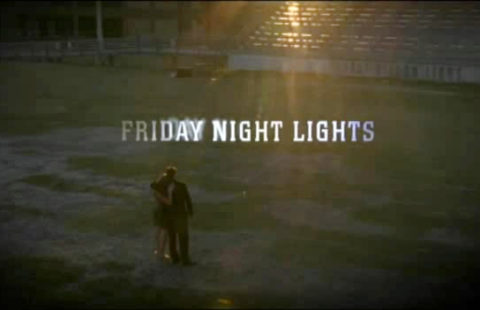A show about dependence

The last 10-15 years have seen a lot of innovation in scripted television. The most notable trend has been in edgy, high-budget dramas made for cable, but my favorite developments have come from the broadcast networks: The West Wing's mashup of ER romantic realism and Tracy-and-Hepburn goofball wisecracking, Arrested Development's perfection of the sitcom shift from sound stages and laugh tracks to tightly edited madcap plots, the hit-or-miss beautiful mess that is Glee.
My current favorite is also a broadcast-network show, but its most notable trait is how steadfastly conventional it is. Friday Night Lights--the finale airs on the 101 Network tonight before being rebroadcast later on NBC--has never exhibited much interest in pushing boundaries of genre, subject matter or FCC-regulated taste. Instead, the high-school-football-themed drama combines steady writing, soft-touch directing and fantastic acting to produce a fully realized picture of a small Texas town and its residents.
Actually, Friday Night Lights has been innovative in the area of production. The show relies entirely on locations rather than sets, shoots scenes in single takes with multiple cameras and employs an unusual degree of improvisation. But all this serves the show's diligent realism, which is truly striking--especially given how rare it is for a show to focus on middle America at all, much less in an authentic and unironic way.




